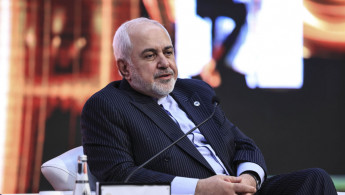New six-part book by former Iranian FM Zarif details Iran nuclear negotiations
A new six-volume memoir by former Iranian Foreign Minister Mohammed Javad Zarif has detailed the path to the original Iranian nuclear deal and how the negotiations unfolded.
Titled The Sealed Secret: An Immense Endeavour for Iran’s Rights, Security and Development, and published by the Information Institute Publications, the book was released at the start of August, and key details have been published by IranWire.
In addition to documenting key points from the negotiations, the books also indirectly criticise former Iranian President Mahmoud Ahmadinejad, as well as Iranian Supreme Leader Ali Khamenei.
The book details how it was the Iranians who, in 2009, reached out to the US and took the first steps to initiate the talks.
"A few days before the 2009 [presidential] election, between May 2 and 4, Dennis Ross, advisor to the US secretary of state, made a stop in Muscat and was given a copy of a letter called the 'Iranian proposals' from the Omanis. He took it with him to Washington," writes Zarif.
Although Zarif does not explicitly say from where in the government the "Iranian proposals" came, it is believed that they could not have been made without the knowledge and approval of the Supreme Leader.
"It is not clear which government authority and who delivered these proposals to Oman," Zarif claims.
Zarif's book goes on to detail a series of letters between the Supreme Leader and US President Barack Obama, which were sent in 2009.
According to IranWire, Obama refrained from commenting on the pro-democracy protests that were taking part in Iran at the time, but angered Khamenei greatly when he eventually brought up the killing of demonstrator Neda Agha-Soltan by security forces.
Zarif writes how Khamenei repeatedly criticised the US president for signing off his letter with the phrase "Yours Truly".
The letters between the two leaders were sent via the Swiss embassy in Tehran, and also through Wendy Sherman, the Deputy Secretary of State at the time, who also was involved in the ongoing nuclear negotiations, claims Zarif.
Zarif details how, after the initial unsuccessful round of talks, the second round of talks were again facilitated by the Omanis.
The former minister revealed that the letter was, on this occasion, delivered by Ali Akbar Velayati, one of Khamenei’s advisors; a detail that, at the time, was categorically denied by Velayati.
The book reveals how Khamenei was personally involved in supervising the nuclear talks behind the scenes despite not publicly supporting the negotiations.
"The Americans are sending us messages through different channels, inviting us to talk about the nuclear question," said Khamenei in March 2013, contrasting with claims now made by Zarif.
Zarif's book claims that the Supreme Leader wanted the secret talks in Oman and the nuclear negotiations to remain separate, but following the election of President Hassan Rouhani, the two streams were combined.
When discussing the talks that eventually lead to the nuclear deal, the book appears to paint the negotiators, particularly Saeed Jalili, who was leading the negotiations, as inexperienced.
The Sealed Secret reveals how they failed to record the minutes of the negotiations, leading to differing accounts of the meetings, and how in the reports there were "numerous errors in recording crucial words and phrases", which caused confusion among senior Tehran officials.
Zarif left the Iranian government earlier this year, following the election of the hardline Ebrahim Raisi, who has been publicly sceptical of the Iranian nuclear deal.





 Follow the Middle East's top stories in English at The New Arab on Google News
Follow the Middle East's top stories in English at The New Arab on Google News


![22 Arab countries at COP29 have rejected the targeting of fossil fuels [Getty]](/sites/default/files/styles/image_330x185/public/2024-11/GettyImages-2184289638.jpg?h=199d8c1f&itok=ptHl5bec)